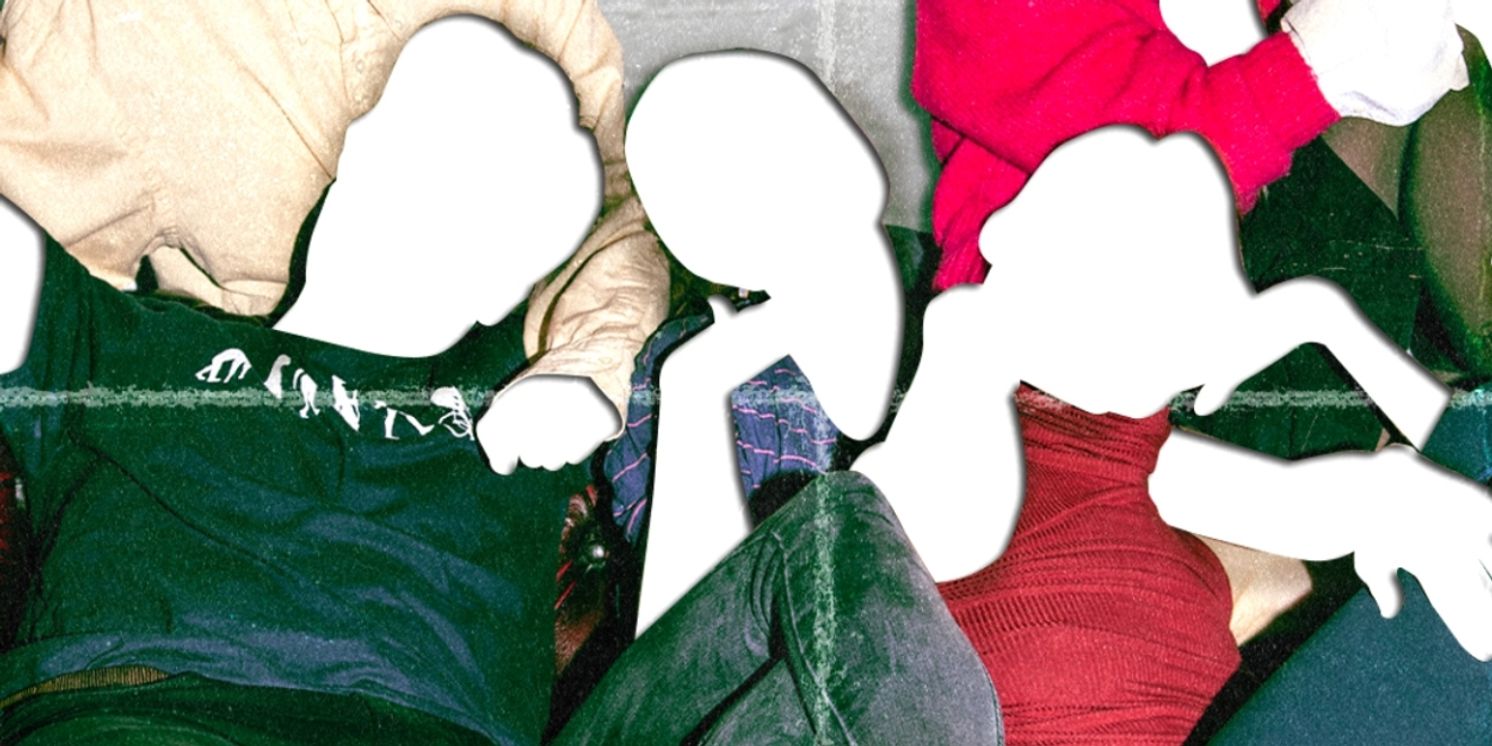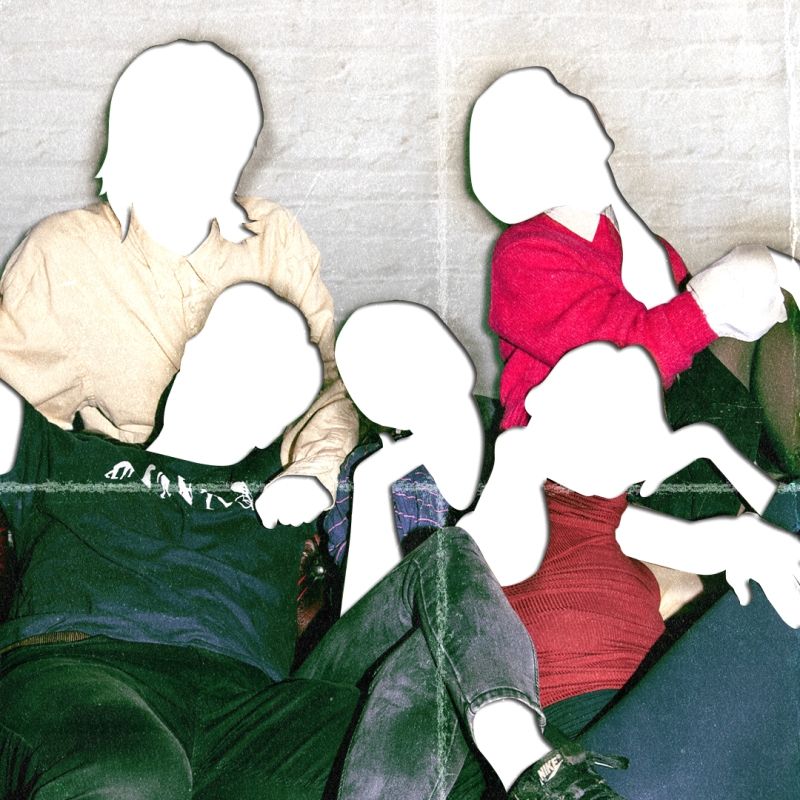Interview: 'It's important for trauma-informed art to have a place in society.' Francis Grin, Jennie Eggleton, & Charlotte Everest on DREAM SCHOOL at The Space
Creators of DREAM SCHOOL at The Space chat theatre, cults and Safer Spaces

 Inspired by a true story, DREAM SCHOOL is a thriller about a group of students who accidentally find themselves in a cult.
Inspired by a true story, DREAM SCHOOL is a thriller about a group of students who accidentally find themselves in a cult.
Running at The Space from 17th May, BroadwayWorld chats to the play's writer Francis Grin - and producers Jennie Eggleton and Charlotte Everest - about the real-life roots of the show, the ethics of producing narratives of trauma, and the importance of the processes behind the creation of the production as a part of "A Call For Safe Practice".
Tell us about the Show!
Francis: DREAM SCHOOL was first inspired by an article in The Cut magazine called 'Larry Ray and the Stolen Kids of Sarah Lawrence', about a group of university students in New York who find themselves in a cult led by a classmate's father. This wasn't exactly a cult in the traditional sense: there were no wacky religious figures or weird rituals. This was a much more subtle case of power play, where each student slowly lost their power to this man.
This story first hit home because I'd briefly studied at Sarah Lawrence and lived across the road from where this all started. But the more I read about these people, the more fascinated I became.
In the end, we've created a fictional group of characters to explore these questions. The play takes place in two timeframes. One in 2010, inspired by the actual cult. And one in the present day, 2023, as a group of students look back at the damage caused earlier in their lives and try to make sense of it. They discover, in the end, that time doesn't necessarily heal wounds, but there are other ways to reclaim their power.
Charlotte: This play is a product of three years of grappling, with a team of creatives asking the question: "how can we create something inspired by such horrific violence and make the world a better place?". In short, [asking] can you make good out of trauma? Of course, that's a reductive question taken from a much bigger conversation, but I hope in developing this play and in being asked about our intention, we're contributing to a paradigm shift for where wellbeing sits within the arts.
What is "A Call for Safe Practice"?
Jennie: It's been our guiding star, I think. It contextualizes all we do in a wider longer journey. Working with the research department at the University of Greenwich, 'A Call For Safe Practice' will create a handbook for how theatre makers of all experience [levels] and all disciplines can make work, and in particular, trauma-informed work safely. It considers creatives and audience accessibility, inclusivity, safety, and well-being, including working with intimate content of any nature (which in our play, can even include the hidden power dynamics at play). Once this handbook is complete, we hope to accredit it and distribute it as a form of training for aspiring, emerging, and practicing theatre-makers.
With the help of our 3 specialists, Access Advisor Shona Louise, Intimacy Director Abi Battersby and Creative Psychotherapist Caroline Brindle, we are creating a safe practice handbook that we are testing on DREAM SCHOOL. This means we can see in real time whether the work is effective and accessible. Ultimately, this resource should be able to aid a range of creatives at varied levels of experience; from individual freelancers, and early-career creatives to established companies, or producing houses. It could also be used as a teaching tool or module in further education settings.
Can you give us some examples of how the show was made safely?
Charlotte: Our Creative Psychotherapist, Caroline did an introductory session with the cast on the biology behind the body's trauma response. With a few simple exercises, she was able to give the team a quick toolbox on how to 'self-regulate' in situations that cause high anxiety, which is so useful when dealing with potentially triggering material. By 'self-regulate' we mean, how to just get the body back to a calmer, more grounded state, whenever needed.
We also looked at creating a 'code of conduct' for the room, this includes a ritual for 'opening' and 'closing' the space so that we create a space in rehearsals that allows us to be vulnerable, and deal with difficult material. But we know, at the end of the day, the space is 'closed' and no one has to bring the material home with them!
Our intimacy director, Abi, worked with our actors to ensure that they became comfortable stating and exploring their boundaries. This included exercises where we learned how to simply say 'no' and got a better grasp of our personal space and limits.
What place do you think trauma-informed art has in British culture?
Jennie: There is a reason why trauma-informed art is so popular; it has an incredible capacity to teach us about not only society, but ourselves: how we navigate pain, loss, and love. From the first work that creatives make to favourites that are revisited by seasoned professionals [and are] regularly informed by personal and collective trauma. It's so important for it to have a place in society - and when done well and safely it can be powerful and transformative.
Why should people see the show?
Francis: DREAM SCHOOL offers something for everyone. Whether you're interested in true crime, trauma-informed theatre, new writing, or simply looking to be taken on a thrilling journey for the night - we've got it. Our access advisor Shona Louise has ensured that our show does everything it can to remain open to a range of audiences. We aim to create a space where people can feel safe and comfortable. The theatre can feel a little daunting sometimes, especially when those house lights go down. We pride ourselves in having created a space where, no matter how you're feeling in the moment, there's room to breathe and come and go as you please. And lastly, this is definitely an unusual story, so if you're looking for a night out that's a little bit different, this is the right one for you!
DREAM SCHOOL at The Space from 17 May until 3 June
Videos

